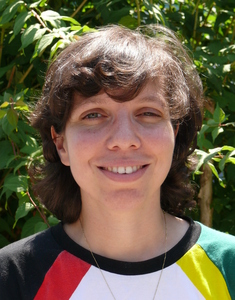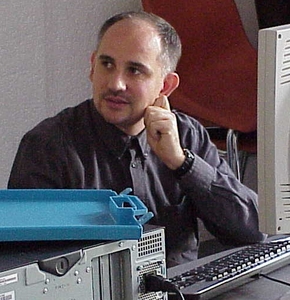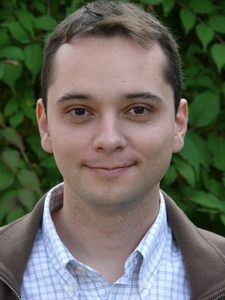
Professor Massimiliano Di Ventra receives a Humboldt Research Award 2024
Professor Massimiliano Di Ventra received a Humboldt Research Award for his research in MemComputing, a new computing paradigm he proposed, which employs memory to process information to solve complex combinatorial optimization problems efficiently.
About MemComputing
MemComputing is a new computing paradigm that takes advantage of a fundamental property shared by all physical systems: memory. This property means that when the state of a system is perturbed by an external signal such a perturbation affects its dynamics at a later time.
This feature is quite remarkable since it can generate correlations between different parts of the system that do not decay extremely fast (exponentially) with distance, rather slowly (algebraically). In other words, even if the single units interact locally with their nearest neighbors, memory can couple them at long distance.
This phenomenon can be easily found even in nature. Consider for instance how ants solve the shortest-path problem to find food. In that case, ants release a `memory trail' of pheromones that can be detected by other ants. The pheromones persist for a certain time, so that the shortest path from the nest to the food is the one on which the most pheromones are deposited. This allows other ants to traverse such a path, and, consequently, to keep reinforcing it for other ants to follow. Even though the ants interact only locally, the pheromone memory trail produces a long-range type of spatial interaction among the ants that allows them to solve the shortest-path problem.
MemComputing machines operate similarly. When they are designed to solve combinatorial optimization problems, their memory features generate long-range correlations among their elementary units in such a way that they can solve difficult problems efficiently. In fact, many of these problems are very difficult to solve with traditional algorithms precisely because their variables are strongly correlated. A MemComputing machine is then able to extract those correlations thanks to the long-range interactions of its units.
About the Humboldt Research Award
Every year, the Alexander von Humboldt Foundation grants up to 100 Humboldt Research Awards to internationally leading researchers whose fundamental discoveries, new theories, or insights have had a significant impact on their own discipline and beyond and who are expected to continue producing cutting-edge academic achievements in the future.
Professor Di Ventra short bio
Massimiliano Di Ventra obtained his undergraduate degree in Physics summa cum laude from the University of Trieste (Italy) in 1991 and did his PhD studies at the Swiss Federal Institute of Technology in Lausanne in 1993-1997. He is professor of Physics at the University of California, San Diego since 2004. Di Ventra's research interests are in condensed-matter theory and unconventional computing. He has been invited to deliver more than 350 talks worldwide on these topics including 16 plenary/keynote presentations. He has published more than 300 papers in refereed journals, 5 textbooks, and has 11 granted patents (7 foreign). He is a fellow of the American Association for the Advancement of Science, the American Physical Society, the Institute of Physics, the IEEE and a foreign member of Academia Europaea. In 2018 he was named Highly Cited Researcher by Clarivate Analytics, he is the recipient of the 2020 Feynman Prize for theory in Nanotechnology and is a 2022 IEEE Nanotechnology Council Distinguished Lecturer. He is the co-founder of MemComputing, Inc. (http://memcpu.com/).









Professor Massimiliano Di Ventra receives a Humboldt Research Award 2024
Professor Massimiliano Di Ventra received a Humboldt Research Award for his research in MemComputing, a new computing paradigm he proposed, which employs memory to process information to solve complex combinatorial optimization problems efficiently.
About MemComputing
MemComputing is a new computing paradigm that takes advantage of a fundamental property shared by all physical systems: memory. This property means that when the state of a system is perturbed by an external signal such a perturbation affects its dynamics at a later time.
This feature is quite remarkable since it can generate correlations between different parts of the system that do not decay extremely fast (exponentially) with distance, rather slowly (algebraically). In other words, even if the single units interact locally with their nearest neighbors, memory can couple them at long distance.
This phenomenon can be easily found even in nature. Consider for instance how ants solve the shortest-path problem to find food. In that case, ants release a `memory trail' of pheromones that can be detected by other ants. The pheromones persist for a certain time, so that the shortest path from the nest to the food is the one on which the most pheromones are deposited. This allows other ants to traverse such a path, and, consequently, to keep reinforcing it for other ants to follow. Even though the ants interact only locally, the pheromone memory trail produces a long-range type of spatial interaction among the ants that allows them to solve the shortest-path problem.
MemComputing machines operate similarly. When they are designed to solve combinatorial optimization problems, their memory features generate long-range correlations among their elementary units in such a way that they can solve difficult problems efficiently. In fact, many of these problems are very difficult to solve with traditional algorithms precisely because their variables are strongly correlated. A MemComputing machine is then able to extract those correlations thanks to the long-range interactions of its units.
About the Humboldt Research Award
Every year, the Alexander von Humboldt Foundation grants up to 100 Humboldt Research Awards to internationally leading researchers whose fundamental discoveries, new theories, or insights have had a significant impact on their own discipline and beyond and who are expected to continue producing cutting-edge academic achievements in the future.
Professor Di Ventra short bio
Massimiliano Di Ventra obtained his undergraduate degree in Physics summa cum laude from the University of Trieste (Italy) in 1991 and did his PhD studies at the Swiss Federal Institute of Technology in Lausanne in 1993-1997. He is professor of Physics at the University of California, San Diego since 2004. Di Ventra's research interests are in condensed-matter theory and unconventional computing. He has been invited to deliver more than 350 talks worldwide on these topics including 16 plenary/keynote presentations. He has published more than 300 papers in refereed journals, 5 textbooks, and has 11 granted patents (7 foreign). He is a fellow of the American Association for the Advancement of Science, the American Physical Society, the Institute of Physics, the IEEE and a foreign member of Academia Europaea. In 2018 he was named Highly Cited Researcher by Clarivate Analytics, he is the recipient of the 2020 Feynman Prize for theory in Nanotechnology and is a 2022 IEEE Nanotechnology Council Distinguished Lecturer. He is the co-founder of MemComputing, Inc. (http://memcpu.com/).







